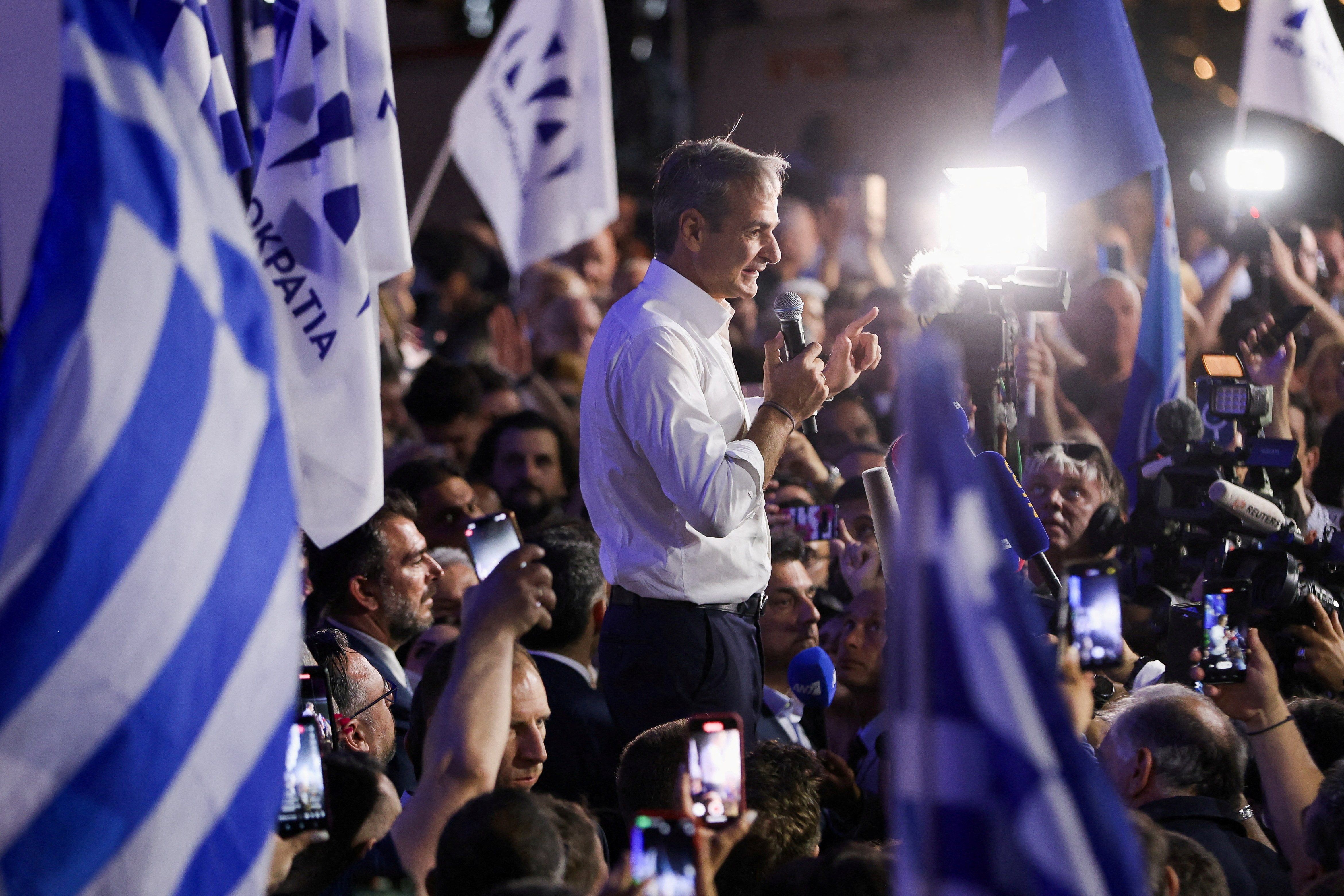The ruling center-right New Democracy Party of PM Kyriakos Mitsotakis is projected to win Sunday's second-round Greek election with 40.5% of the vote. That gives Mitsotakis an outright majority of 158 seats in the 300-member parliament, enough to form a government.
The landslide victory is obviously great news for Mitsotakis, who just months ago looked set to lose the top job following first a wire-tapping scandal and then a deadly train crash that many Greeks blamed on poor maintenance. What's more, with his comfortable majority, in his second term the PM will be able to pass significant reforms to the country's famously bloated and outdated public sector.
It's also a boon for the Greek economy, which is one step away from regaining its investment-grade credit rating 12 years after losing it and ultimately being downgraded to junk status over the debt crisis. Now might be a good time to park your disposable cash in Greece.
But the result is pretty bad news if you're on the left side of the political spectrum. The hard-left Syriza Party — which was in power for several years before Mitsotakis and saved Greece from bankruptcy and a eurozone exit — got walloped at the ballot box, while two far-right parties unexpectedly surpassed the 3% of the vote threshold to enter parliament.
"New Democracy’s victory follows the similar experience of other southern EU member states, which are returning to the right having tacked left after the eurozone's debt crisis," tweeted Mij Rahman, Eurasia Group's top Europe expert. "Italy is a case in point.” Expect Spain to continue the trend after the July 23 snap election.
